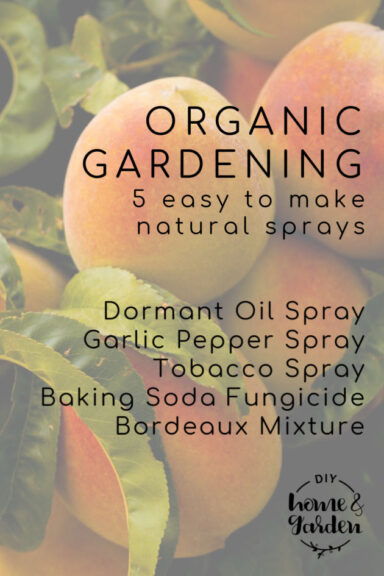In recent years, making informed choices about our food has gained significant attention. One topic that has sparked debates and concerns is genetically modified organisms (GMOs). GMOs are organisms with genetic material altered using biotechnology techniques. As the demand for natural wellness grows, understanding the implications of GMOs and bioengineered food has become increasingly crucial. In this article, we will explore what GMOs are and provide you with ten compelling reasons to opt for non-GMO foods.
Understanding GMOs
GMOs are created by introducing specific genes from one organism into the DNA of another, resulting in desired traits such as increased yield, pest resistance, or enhanced nutritional content. These modifications are typical for crops like soybeans, corn, and cotton in the agricultural sector.
GMO is a euphemism, a prettier way to say genetically modified foods, seeds, or bioengineered food.

Areas of Concern Surrounding GMO and Genetically Modified Food
While genetic engineering, the process used to create genetically modified organisms (GMOs), has shown certain benefits, it has also given rise to legitimate concerns regarding its potential risks and long-term effects on human health and the environment. These concerns have sparked widespread debate and prompted calls for careful examination and regulation of GMO technology. This section will dive into three critical areas of concern associated with genetic engineering.
1 – Human Health Risks:
- Allergenicity: Genetic modification can infrequently introduce proteins or other substances into foods that may trigger allergies in susceptible individuals. The transfer of genes from allergenic sources to non-allergenic foods could heighten the risk of allergic reactions. The NIH states that this is rare; however, it is possible.
- Toxicity: Genetic modifications can inadvertently create new substances or alter the levels of existing ones in ways that may be toxic to humans. Assessing the safety of GMOs is essential to ensure that they do not pose any unforeseen risks to human health.
- Antibiotic Resistance: Some genetic engineering techniques involve using antibiotic-resistance genes as markers to identify successful modifications. There are concerns about how the widespread use of these genes in GMOs could contribute to antibiotic resistance in bacteria, diminishing the effectiveness of antibiotics for treating human illnesses.
2 – Environmental Implications:
- Ecological Disruption: GMOs engineered for pest resistance may affect non-target organisms, including beneficial insects, birds, and other wildlife. The alteration of crop characteristics can disrupt ecosystems and impact biodiversity.
- Herbicide Resistance: Genetically modified crops resistant to herbicides have led to increased herbicide usage. This increase can result in the emergence of herbicide-resistant weeds, leading to a cycle of escalating herbicide use and potential environmental harm.
- Gene Flow: GMOs can crossbreed with wild relatives or related crop varieties, transferring modified genes into non-target populations. This gene flow can alter natural ecosystems and result in unintended consequences.
3 – Lack of Long-Term Studies
- Limited Research: The long-term effects of GMO consumption on human health and any environmental impacts are unclear due to the limited scope of studies. Robust, independent, and long-term research is necessary to comprehensively evaluate the potential impacts of GMOs.
- Unpredictable Effects: The complex interactions between genes, ecosystems, and human health make it challenging to predict the long-term effects of genetic modifications. GMOs’ potential risks and unintended consequences highlight the need for preventive measures and ongoing monitoring.
- Given these concerns, many advocates call for transparent labeling and the right to choose non-GMO foods. They argue that consumers should have access to clear information about GMOs in products, allowing them to make the best individual decisions based on their personal preferences and beliefs.
It is vital to note that the scientific community is actively engaged in ongoing research better to understand the possible risks versus benefits of GMOs. Regulatory bodies are also working to establish guidelines and frameworks to ensure the safety and proper assessment of genetically modified crops.
The contention that GMOs pose no risks to human health can’t be supported by studies that have measured a time frame that is too short to determine the effects of exposure over a lifetime.
Consumer Reports
10 Reasons to Choose Non-GMO Foods:
- Health Concerns: Some studies suggest GMOs may adversely affect human health, such as allergies, toxicity, and antibiotic resistance. You can mitigate potential risks and prioritize your well-being by choosing non-GMO foods.
- Environmental Impact: GMO crops often require more herbicides and pesticides, which can harm beneficial insects, contaminate water sources, and disrupt ecosystems. Non-GMO farming practices, on the other hand, tend to be more sustainable and environmentally friendly.
- Natural and Authentic Taste: Many argue that non-GMO foods offer a more authentic taste than their genetically modified counterparts. Choosing non-GMO ensures that you are experiencing the natural flavors and qualities of the food you consume.
- Supporting Biodiversity: GMOs often lead to monocultures, where vast areas grow a single genetically modified crop. This practice can reduce biodiversity and negatively impact pollinators, birds, and other wildlife. Opting for non-GMO foods helps promote diverse and resilient ecosystems.
- Consumer Choice and Transparency: By selecting non-GMO foods, you actively support the right to know what you eat and make informed diet decisions. Many countries have implemented mandatory labeling laws, enabling consumers to identify and choose non-GMO products quickly.
- Preserving Traditional Agriculture: Non-GMO foods are often associated with traditional farming practices, which prioritize crop rotation, natural pest control methods, and sustainable land management. Choosing non-GMO supports local farmers who uphold these traditional methods.
- Long-Term Sustainability: GMOs raise concerns about their long-term effects on soil fertility, impacting future generations’ ability to grow healthy crops. By embracing non-GMO foods, you contribute to sustainable agriculture by prioritizing soil health and fertility.
- Ethical Considerations: GMOs have raised ethical concerns about patenting and corporate control over food production. Non-GMO foods are often associated with a more decentralized and equitable food system, fostering fairer practices in the agricultural industry.
- Allergy Management: Some individuals have allergies or sensitivities to specific genetically modified ingredients. You can avoid potential allergens and better manage your dietary needs by choosing non-GMO foods.
- Supporting Organic Agriculture: Many organic food standards prohibit the use of GMOs. By selecting non-GMO foods, you align yourself with the principles of organic farming, which prioritize natural, chemical-free practices and the welfare of animals.
Should You Choose GMO Seeds for Your Garden?
Genetically modified organism (GMO) seeds can grow in gardens and yield successful results–at least in some cases. You can succeed when you purchase GMOo seeds in a packet for planting. However, seed-saving from fresh fruits and vegetables can create unpredictable results.
Some factors influence the feasibility and practicality of using GMO seeds in home gardening settings. Here are a few reasons why planting GMO seeds in a garden may not always be a good idea.
6 Reasons to avoid gmo seeds (assuming you could purchase them, which you might not be able to!)
- Availability: GMO seeds are primarily developed and distributed by agricultural biotechnology companies. These companies often sell GMO seeds in bulk quantities to commercial farmers rather than individual home gardeners. As a result, it could pose a significant challenge for the average gardener to access GMO seeds for personal use.
- Patents and Licensing: Many GMO seeds have the protection of patents and intellectual property rights. These legal protections restrict the saving and replanting of GMO seeds by individuals. Farmers who purchase GMO seeds must typically sign licensing agreements preventing them from saving and reusing them. Violating these agreements can lead to legal consequences.
- Commercial Traits: GMO crops often have specific commercial traits, such as herbicidal tolerance or resistance to pests. These traits may not be beneficial or relevant to a small-scale home garden. For example, if a GMO seed can withstand heavy herbicide applications. Thus, it may not be necessary or desirable for a home garden that practices manual weed control.
- Environmental Considerations: Genetically modified crops are best for large-scale agricultural systems, considering machinery usage, specific soil conditions, and climate. Planting GMO seeds in a small garden setting may not align with the intended design of these crops, potentially resulting in suboptimal performance.
- Cost: GMO seeds, especially those with added traits or technologies, can be more expensive than non-GMO seeds. Home gardeners who prefer more affordable options may focus on open-pollinated or heirloom varieties, typically non-GMO.
- Personal Preference: Some individuals avoid GMOs due to personal beliefs, concerns about potential health or environmental impacts, or a desire to support more traditional or organic farming practices. For these individuals, planting GMO seeds in their gardens may not align with their values or goals.
Notably, many non-GMO seeds, including heirloom varieties, are available for home gardeners and can provide excellent results in garden settings. These seeds offer diverse options, often have historical significance, and you can harvest, save, and replant from them year after year. As a result, you preserve genetic diversity and promote sustainable gardening practices.
The Takeaway: Consuming GMO Versus non-GMO Foods Is a Personal Decision
Ultimately, choosing to consume bioengineered foods or not is a personal choice based on individual preferences, beliefs, and access to different seed options. When selecting garden seeds, home gardeners should consider their specific circumstances, goals, and available resources.

